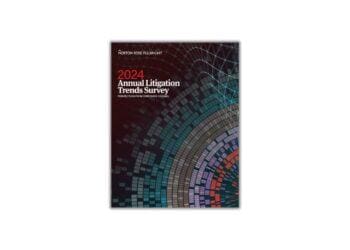Volkswagen has paid dearly for the ethical shortcomings that led to “Dieselgate.” But has VW learned from the scandal? With the FTC recently filing the final court summary on the case, Michael Toebe reflects on the crisis that leveled the company’s reputation.
Volkswagen’s good name has been tarnished regularly in the media in the last four years over its low-level decision-making and irresponsibility. Severe financial penalties have been meted out as punitive and corrective measures. There are lessons to be learned from VW’s errors.
In 2015, the company confessed to cheating emissions tests on 11 million vehicles across the globe. “Dieselgate,” as the scandal was called, was a punch to VW’s reputation. The financial hit, significant. The company has paid a whopping $9.5 billion in the last four years to American car owners.
That’s historical, with the Federal Trade Commission (FTC) calling it the “largest consumer redress program in U.S. history.”
The total penalties paid internationally has totaled $35 billion.
VW knew of the problems with its vehicles. As is common in developing scandals and the reputation crisis that accompany them, instead of responding ethically, leadership engaged in reckless decision-making. The needed corrections were deemed undesirable, and the financial incentives and temptation to cheat proved too great.
There is, however, another school of thought, says Bret Hood, Director of 21st Century Learning & Consulting and adjunct professor of Corporate Governance and Ethics at the University of Virginia. “Some have argued that VW actively contemplated the risk versus the reward, but I would bet that they approached the issue as did Ford with the Pinto. We take the issue and turn it into a cost-benefit analysis and, as we are taught, the lowest cost is the choice,” he says. “Where we are fallible is that we never do an objective evaluation, because our System 1 brains (automatic) are working in our subconscious to help us produce a predetermined outcome; in this case, sales volume.”
Hood sees another variable as very likely in play, as questionable a rationalization as it could seem to critics. “There are a number of ethical models, such as the Rest Model, Kohlberg’s stages of moral development and the Jones Moral Intensity model, but as Ann Tenbrunsel and Max Bazerman point out, most of the time, the decision-makers have not classified the dilemma as an ethical issue,” he says. “This idea is reinforced by (Daniel) Kahneman’s work on the System 1 (automatic) and System 2 (rational deliberation) thinking.”
It’s reasonable to suppose that moral courage was either insufficient at VW or absent altogether. In cases like these, governance and compliance will never be conducted as skillfully as necessary. As history proves repeatedly, scandal is far more likely.
Click to read more coverage and analysis of the Volkswagen scandal
Expectations mixed with unexpected developments, stress, psychology and intent are strong drivers of predictable behavior. “As we look at Wirecard, Enron, etc., the executive decision-makers are assisted in their deviation from the ethical path by both motivated blindness and indirect blindness,” Hood says. “With motivated blindness, ‘I am willing to overlook things because it is easy for me to overcome internal objections as I am motivated to succeed.’ When you get into large organizations such as these, it is easier to diffuse responsibility through psychological distance from the victims as well as the actual act of committing the fraud.”
This psychological distance is an important variable to understand and recognize as a driver of decision-making and behavior. It plays a role in acts and momentum that lead to a violation of principles, weak or failed governance and missing compliance.
“Indirect blindness comes in when I, the executive, do not actually participate in the unethical behavior but rather, someone on the lower rungs of the organization actually creates the transactions necessary for the unethical behavior to succeed,” Hood says.
This can be either a conscious act or a realization. Either way, both can end up being used as a defense by leadership in behavior and a response when wrongdoing is exposed and scandal is underway, even if considered unprofessional, unconvincing and a failed attempt at absolving oneself of responsibility.
“As an example, the CEO of VW did not sit in on the meetings talking about falsifying the codes, nor did he create the software code that accomplished the mission. This leads to indirect blindness since ‘I did not take part in the mechanics of the process,’” Hood says, as an example of how this works.
The cold and difficult truth is investigators, the law, the media and the public don’t buy this type of defense. The evidence trumps the corporate or legal spin.
“Despite this, the CEOs of all these organizations had an active hand in the unethical behavior by what they said or didn’t say,” Hood says. “In the VW case, an engineer went up to an executive and said, ‘We don’t have the technology to accomplish this.’ The executive responded by saying, ‘Maybe it is time I get another engineer.’ While there was no specific unethical message, there was clearly an implied message.”
The blame-shifting and attempt at exonerating oneself organizationally or individually is not just poor form; it is considered contemptuous to throw your team into the fire, given that the professionals are doing as expected – and uncertainty or fear is a very real component of psychological safety.
“Since people need their jobs, they interpret the exec as saying ‘do whatever it takes and I will tacitly approve,’” Hood says. Another factor is the competitive nature of business in general and the natural personality of leadership or a leadership team.
“Competition and rivalry can certainly lead to unethical behavior as the perception of rivalry creates in (and out) groups,” Hood says. “This usually leads to advantageous comparison wherein you look at yourself and say ‘what I am doing is not nearly as bad as what my competitor is doing’ or ‘I have to do this in order to make this a level playing field.’”
VW has survived its scandal and reputation crisis, but has VW learned from it? Or will the company repeat its errors, as other organizations do?
Are leaders in other organizations paying attention to and learning from this story and similar scandals – from the psychological errors, belief systems, natural competitive tendencies and compromise or failures of ethics, decision-making, governance and compliance?
Some, maybe. The wise ones. However, not all organizations and leaders will pay attention and correct the course they are currently traveling.
Scandals are not closely dissected and examined, but they really should be. Organizations that choose to do so – that regularly test and question their own mindset, practices and weaknesses and make critical adjustments – will be taking significant steps toward critical, protective improvements and risk management, therefore protecting mission, shareholders, reputation, the board and executive careers.
When coupled with humility and a growth mindset, intellectual honesty is a safety precaution critical to prevent embarrassing, costly and career-damaging scandals and to keep your organization from becoming the next cautionary tale.



 Michael Toebe is a reputation specialist who serves individuals and organizations. He regularly writes on communication, ethics, governance, conflicts, scandal, reputation and crisis. He is the writer of “Red Diamonds Essays” and “Reputation Specialist Essays,” both on the Medium platform.
Michael Toebe is a reputation specialist who serves individuals and organizations. He regularly writes on communication, ethics, governance, conflicts, scandal, reputation and crisis. He is the writer of “Red Diamonds Essays” and “Reputation Specialist Essays,” both on the Medium platform.







